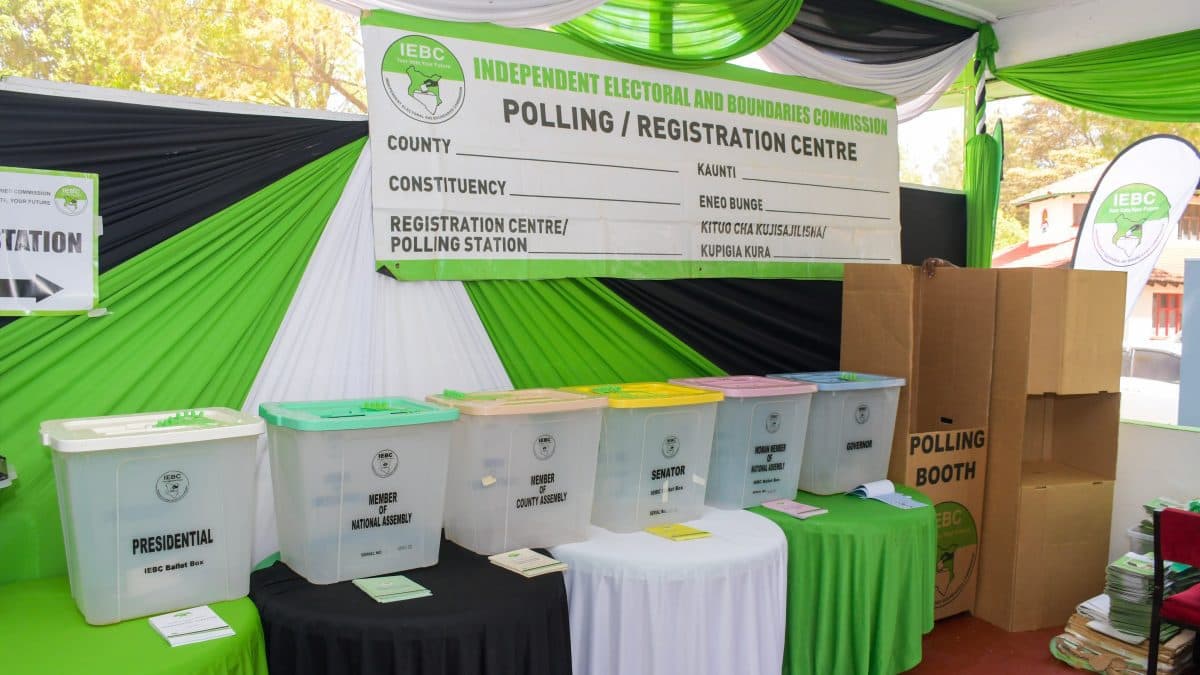We're loading the full news article for you. This includes the article content, images, author information, and related articles.
Kenya's youth, particularly Generation Z, are being called upon to actively participate in the ongoing voter registration drive, with analysts highlighting their potential to significantly influence the 2027 General Election outcomes.

Nairobi, Kenya – As Kenya gears up for the 2027 General Election, a concerted effort is underway to mobilise young people, especially Generation Z, to register as voters. This initiative underscores the growing recognition of Gen Z's potential to be a transformative force in the country's political landscape, moving beyond digital activism to direct electoral influence.
The Independent Electoral and Boundaries Commission (IEBC) resumed its Continuous Voter Registration (CVR) exercise on Monday, September 29, 2025, across all 290 constituency offices and Huduma Centres nationwide. The commission aims to register 6.3 million new voters before the next general election, with a significant target of 70% being youth.
Kenya is a youthful nation, with approximately 75% of its population falling within the 18-35 age bracket. Despite this demographic advantage, youth participation in formal electoral and political spheres has historically been low. In the 2022 General Election, youth aged 18-35 constituted only about 39.84% of the total registered voters, a decline of 5.17% from 2017 figures. This low engagement has been attributed to a general perception that votes do not count, a lack of trust in the political system, and challenges such as unemployment and poverty.
However, recent years have seen a shift, with Gen Z demonstrating a growing political consciousness through digital activism and protests. The anti-government protests in June 2024 against the Finance Bill, largely mobilised through social media, showcased their capacity for collective action and their rejection of traditional political leadership.
The Kenyan Constitution guarantees the right to vote for every citizen aged 18 and above, and Article 55 mandates the state to take affirmative action to ensure youth representation and participation in political spheres. The Political Parties Amendment Act 2022 further requires political parties to allocate 15% of their positions to individuals under 35, aiming to increase youth representation.
The IEBC's CVR exercise is a constitutional mandate under Article 88(4) and is crucial for ensuring inclusive and representative elections. The commission has allocated KES 8 billion for voter registration and KES 2.5 billion for voter education as part of its KES 57.3 billion budget for the entire election cycle.
Various stakeholders are actively encouraging youth registration. Former IEBC commissioner Roselyn Akombe has warned against voter apathy, stating it only strengthens incumbents. Political leaders, including former Chief Justice David Maraga and Wiper leader Kalonzo Musyoka, have also joined the call for increased youth registration and electoral transparency.
Despite these efforts, some youth express privacy concerns over the use of iris scanning technology by the IEBC during registration. However, IEBC Commissioner Anne Nderitu has assured the public of compliance with the Data Protection Act.
The IEBC aims to increase the voter base from 22.1 million to over 28 million for the 2027 elections. An estimated 14 million Gen Z Kenyans will be eligible to vote in 2027, with the potential to significantly influence electoral outcomes. In the 2022 elections, voter turnout was approximately 65%, a decrease from 80% in 2017.
The low youth voter turnout in past elections highlights a risk of their concerns being underrepresented in policy-making. While Gen Z's digital activism has brought issues like economic justice and corruption to national debate, sustained change requires engagement with formal political processes. The rejection of ethnic kingpins by Gen Z could fundamentally reshape Kenya's political landscape, moving towards issue-based politics over tribal affiliations.
While the IEBC has outlined its plans for voter registration, the effectiveness of its voter education programs and its ability to overcome youth disillusionment remain critical. Concerns about data security and the transparency of the electoral process persist among some segments of the population.
The Continuous Voter Registration exercise began on Monday, September 29, 2025, and will run until eight months before the 2027 General Election. Eligible Kenyans can register at any IEBC Constituency Office, except in areas with ongoing by-elections. Services include new registration, transfer of registration, correction of details, and inspection of voter status.
The coming months will be crucial in observing the uptake of voter registration among young Kenyans. The impact of ongoing voter education campaigns and the ability of political parties to genuinely engage with youth concerns will determine the extent of Gen Z's influence in the 2027 elections. The shift from online activism to tangible electoral participation will be a key indicator of Kenya's evolving democratic landscape.
Keep the conversation in one place—threads here stay linked to the story and in the forums.
Sign in to start a discussion
Start a conversation about this story and keep it linked here.
Other hot threads
E-sports and Gaming Community in Kenya
Active 9 months ago
The Role of Technology in Modern Agriculture (AgriTech)
Active 9 months ago
Popular Recreational Activities Across Counties
Active 9 months ago
Investing in Youth Sports Development Programs
Active 9 months ago
Key figures and persons of interest featured in this article